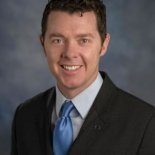If you want to minimize allergies and respiratory symptoms, you have to reduce the pollution in your home environment.
However, you can’t control the pollution caused my automobile exhaust on streets and in parking garages.
The largest source of air pollution in American cities is motor vehicles. Miles driven by Americans increases every year. The concentration of air pollution is highest near the highway.
The particle-based pollutants come from fuel combustion. They’re tiny and can stay in the deepest part of your lungs, causing harmful reactions in your body.
You can do something as an individual to decrease the impact. Reduce the time you spend on the highways and limit your mileage. Use your city’s transit system as much as you can. Improve the efficiency of your vehicle by keeping it in good repair
Listen as Dr. Roby Greenwald joins Dr. Susanne Bennett to explain the toxicity of vehicular air pollution.
Rush Hour Pollution Toxicity
How does driving affect your lungs?
Additional Info
- Segment Number: 1
- Audio File: wellness_for_life/wl325.mp3
- Featured Speaker: Roby Greenwald, PhD
- Guest Website: Dr. Roby Greenwald
-
Guest Bio:
 Dr. Roby Greenwald is an assistant professor in the Division of Environmental Health at the Georgia State University School of Public Health.
Dr. Roby Greenwald is an assistant professor in the Division of Environmental Health at the Georgia State University School of Public Health.
His primary research interests are measuring the ways in which air pollution influences human health, and much of his work involves the development of unique sampling systems for assessing exposure to air pollution in special micro-environments such as inside vehicles or while engaging in physical activity.
From 2009-2014, Dr. Greenwald was on the research faculty of the Department of Environmental Health at Emory University. From 2005 to 2008, he was a post-doctoral fellow in Emory’s Department of Pediatrics and worked on a project investigating the influence of air pollution exposure on pediatric asthma patients. From 1999-2005, he was a PhD student at Georgia Tech and worked on two projects: development of an instrument to measure water-insoluble aerosols in real-time and computer modeling of the influence of atmospheric particulate matter on crop production.
Prior to graduate school, Dr. Greenwald taught beekeeping as a Peace Corps Volunteer in Benin, West Africa (1995-1998) and studied civil engineering at Clemson University (1990-1994).
- Length (mins): 26:38
- Waiver Received: Yes
- Internal Notes: no social media
- Host: Susanne Bennett, DC
Published in
Wellness for Life
Tagged under
